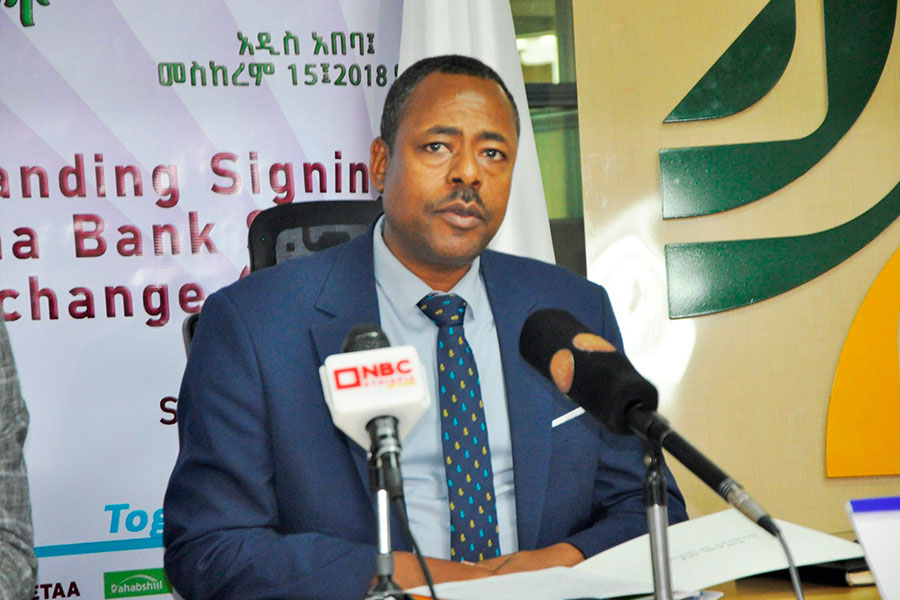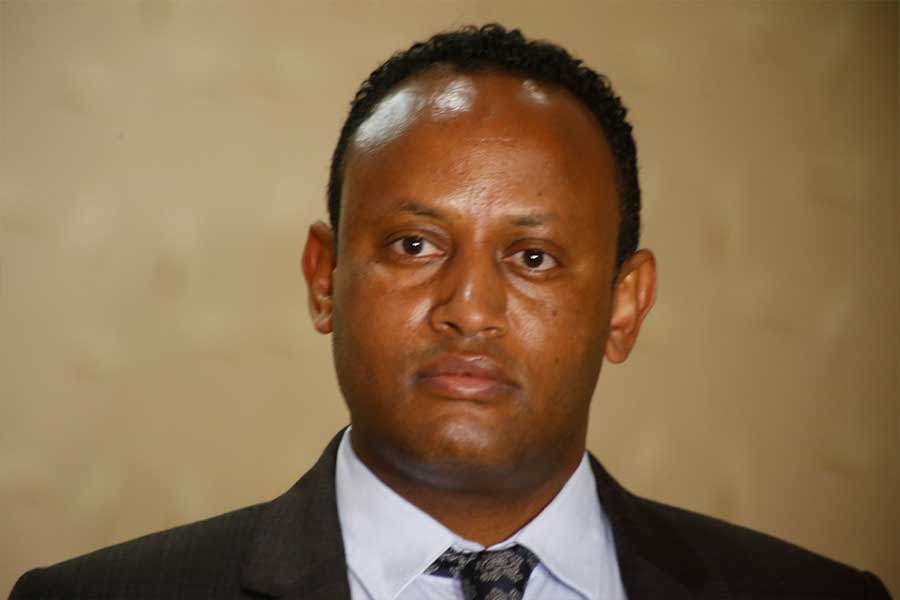
Radar | Nov 14,2020
Jan 15 , 2022
By Pedro Frizo
The protection and conservation of biomes, especially tropical rainforests, is critical to achieve climate goals, especially in countries with abundant forest cover. Nevertheless, the latest monitoring data show significant deforestation in many of these areas, including the world’s most extensive.
In October 2021, Brazil’s National Institute for Space Research reported the highest level of forest loss in the Amazon recorded in that month since monitoring began five years ago. And the problem is not limited to the Amazon. The world’s second-largest tropical forest, the Congo River Basin, lost more than 15 million hectares, or eight percent of its original covering, between 2001 and 2020.
Global goals to promote biodiversity, such as those agreed on at the recent United Nations Climate Change Conference (COP26), are critical to raise awareness about ecosystem loss and ensure accountability at the international level. But much of the actual conservation work necessarily must be carried out locally.
Enabling people in these biodiverse regions to coexist with their environment is essential to ensuring the survival of forest biomes. But earning a livelihood from forests is not a simple task. Activities like mining and logging are more lucrative – at least in the short term – than, say, forest management, sustainable farming, and ecotourism.
A recent survey of land-use dynamics in the Brazilian Amazon conducted over the course of two years offers some insights into how governments and non-governmental actors can promote forest conservation at the local level. For starters, understanding the needs and concerns of residents is critical. Civil-society organizations working in the Amazon, for example, learned that economic stability is a top concern for rural farmers. With this knowledge, NGOs introduced new agricultural practices based on the latest science. Doing so enabled activities such as cattle ranching and coffee production to coexist with recovering forests.
Other programs implanted during this period taught small rural farmers forest-management techniques and how to replant native species. Extension agents working with the NGOs provided technical assistance to the farmers and set up demonstration units to help residents understand the benefits of the new methods. Enthusiastic promotion of the techniques and evidence that they improved production were decisive factors in encouraging local farmers to adopt them and engage in sustainable forestry activities.
In addition to introducing forest-friendly farming practices, civil-society organizations in the Amazon work with small producer cooperatives to integrate remote communities into bigger markets. These networks allow farmers to earn money from the forests without harming them. But this infrastructure is fragile. According to data collected by Conexsus, the annual income sustainable cooperatives in the Brazilian Amazon generated for their members in 2019 was under half of Brazil’s minimum wage for that year. Such low returns make it difficult to attract farmers away from more profitable, but less sustainable activities.
To embrace sustainable forestry, residents of rural communities must view it as a reliable source of stable income. Government institutions could reduce economic uncertainty through legislation and incentives.
Unfortunately, recent policy changes actually limit the viability of sustainable forestry in Brazil. The gradual weakening of the national bodies responsible for controlling and monitoring land use is one of the main causes of the recent increase in deforestation in the Amazon Basin, and Brazil’s rural credit policy also does little to support environmentally sustainable economic initiatives. In 2019 and 2020, only three percent of disbursements made by financial institutions in the Amazon region were directed toward sustainable activities; most of the rest went to industries known to be damaging the local ecosystem, such as soybean production and large-scale cattle ranching.
Community-led organisations are key to promoting sustainable forestry, but their ability to effect change is limited, owing to a lack of capital. Activities like teaching rural farmers more sustainable techniques, creating markets that encourage investment in forest products, and developing ways to integrate Amazon communities into value chains are time-consuming and expensive.
Forest preservation depends on several interconnected factors. Legislation to support conservation efforts and more funding for initiatives like those mentioned here will help promote work that is positive for the environment. But without structural changes at both the national and local level to enable rural residents to earn a living from sustainable forest activities, the destruction of Earth’s most important forest biomes will continue.
PUBLISHED ON
Jan 15,2022 [ VOL
22 , NO
1133]


Radar | Nov 14,2020

Radar | Nov 14,2020

Addis Fortune | May 07,2022

Radar | Sep 19,2020

Fortune News | Sep 27,2025

Radar |

Fortune News | Aug 16,2020

Fortune News | Feb 03,2024

Editorial | Dec 04,2020

Commentaries | Jun 18,2022

Photo Gallery | 172145 Views | May 06,2019

Photo Gallery | 162373 Views | Apr 26,2019

Photo Gallery | 152164 Views | Oct 06,2021

My Opinion | 136364 Views | Aug 14,2021





Dec 22 , 2024 . By TIZITA SHEWAFERAW
Charged with transforming colossal state-owned enterprises into modern and competitiv...

Aug 18 , 2024 . By AKSAH ITALO
Although predictable Yonas Zerihun's job in the ride-hailing service is not immune to...

Jul 28 , 2024 . By TIZITA SHEWAFERAW
Unhabitual, perhaps too many, Samuel Gebreyohannes, 38, used to occasionally enjoy a couple of beers at breakfast. However, he recently swit...

Jul 13 , 2024 . By AKSAH ITALO
Investors who rely on tractors, trucks, and field vehicles for commuting, transporting commodities, and f...

Oct 4 , 2025
Eyob Tekalegn (PhD) had been in the Governor's chair for only weeks when, on Septembe...

Sep 27 , 2025
Four years into an experiment with “shock therapy” in education, the national moo...

Sep 20 , 2025
Getachew Reda's return to the national stage was always going to stir attention. Once...

Sep 13 , 2025
At its launch in Nairobi two years ago, the Africa Climate Summit was billed as the f...

Oct 5 , 2025 . By NAHOM AYELE
In Meqelle, a name long associated with industrial grit and regional pride is undergo...

Oct 5 , 2025 . By BEZAWIT HULUAGER
The federal government is set to roll out a new "motor vehicle circulation tax" in th...

Oct 5 , 2025 . By NAHOM AYELE
The Bank of Abyssinia is wrestling with the loss of a prime plot of land once leased...

Oct 5 , 2025 . By BEZAWIT HULUAGER
The Customs Commission has introduced new tariffs on a wide range of imported goods i...